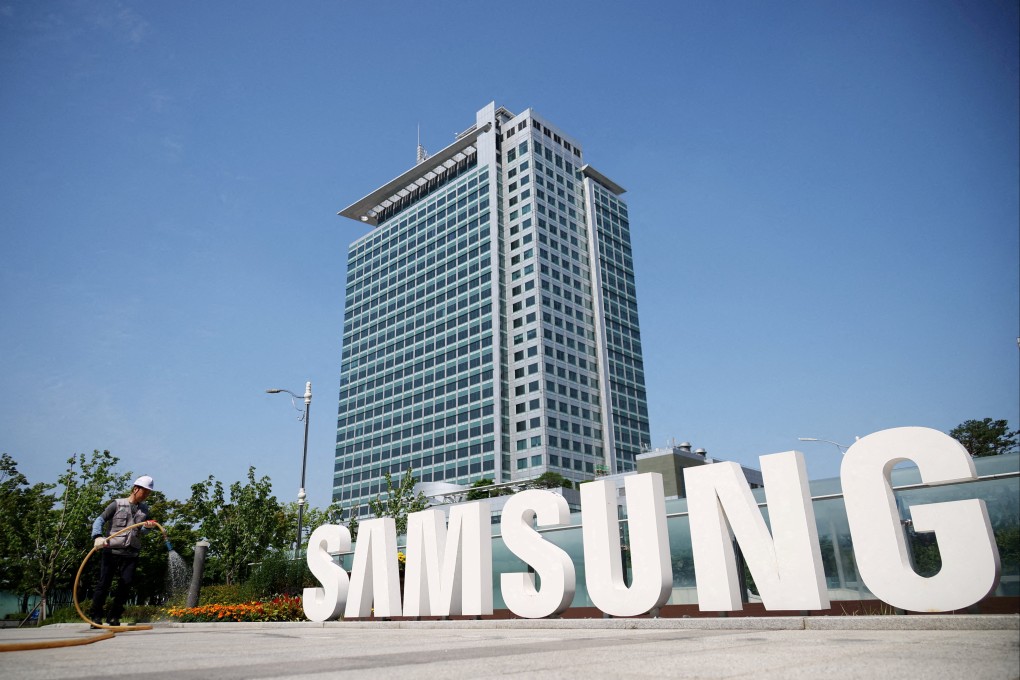Samsung sales fall most in over a decade as chip slump persists
- Despite the disappointing top line number, investors remain cautiously optimistic that the memory chip glut is finally easing after more than a year of price declines
- Samsung said in April it was cutting production after reporting its slimmest profit in 14 years, a significant step towards ending the supply glut

Samsung Electronics Co reported its worst decline in quarterly revenue since at least 2009, stoking uncertainty over when a year-long electronics and memory chip demand slump will end.
The stock slid 2 per cent in Seoul, the most on an intraday basis in more than two months, after Samsung reported a larger-than-anticipated 22 per cent decline in sales to 60 trillion won (US$46 billion). Operating profit plunged 96 per cent in the three months ended June, though at 600 billion won that surpassed average estimates.
Samsung has borne the brunt of a slowdown gripping the US$160 billion global memory industry, reflecting a wider downturn after a Covid-era boom in online activity waned. Inflation and recession fears last year triggered a rapid pullback on consumer and business spending that has since hammered sales of electronics worldwide.
Despite the disappointing top line number, investors remain cautiously optimistic that the memory chip glut is finally easing after more than a year of price declines. Samsung rivals Micron Technology and SK Hynix have signalled that electronics firms are working through bloated stores of memory chips after the post-pandemic collapse in demand for smartphones and computers.
The industry has moved to shore up prices. Samsung said in April it was cutting production after reporting its slimmest profit in 14 years, a significant step towards ending the supply glut. Micron said last week it has passed the low point of the current downturn, while Hynix executives predicted some relief later this year, aided by a recovery in China and artificial intelligence (AI) demand.
Last quarter was “the profit bottom for Samsung in the current memory down cycle,” CLSA analyst Sanjeev Rana said. “We expect a sharp profit recovery in the second half as memory price declines are decelerating and demand is expected to recover.”
Samsung has been the biggest contributor to gains on South Korea’s benchmark Kospi index in 2023. The country’s largest corporation will provide a business outlook when it reports full earnings – including net income and details on divisional performance – on July 27.